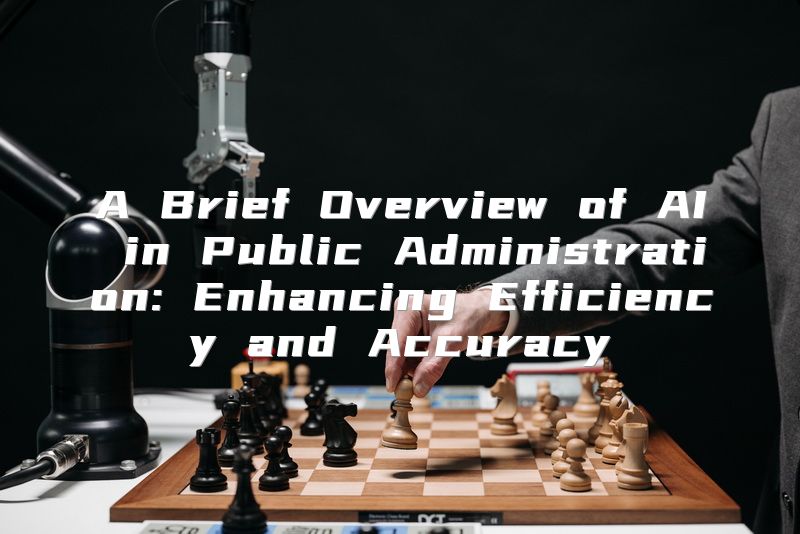A Brief Overview of AI in Public Administration: Enhancing Efficiency and Accuracy
Introduction

The field of Artificial Intelligence (AI), specifically focusing on applications within public administration, is rapidly evolving to address the complex challenges faced by governments. The integration of AI solutions into public sector operations has been pivotal in enhancing efficiency, streamlining processes, and improving decision-making capabilities.
AI Applications in Public Administration
Efficiency Enhancement
AI algorithms are increasingly being employed for administrative tasks such as document processing, data analysis, and predictive analytics. This not only reduces human error but also saves time and resources that can be redirected towards more strategic initiatives.
Decision Making Support
Incorporating machine learning models into policy formulation and monitoring systems allows for more informed decisions based on real-time data and patterns. AI tools can analyze vast amounts of information quickly, providing insights that might otherwise take years to discover.
Customer Service Improvements
AI chatbots powered by natural language processing (NLP) help in handling customer inquiries, reducing response times and increasing satisfaction levels. AI-powered voice assistants offer 24/7 support, allowing citizens to interact with government services without having to wait in long lines or visit physical locations.
Challenges and Opportunities
While the adoption of AI in public administration offers numerous benefits, it presents several challenges that must be addressed:
Data Privacy and Security Concerns
The use of personal data in AI systems raises concerns about privacy and security. Ensuring that sensitive information is protected while leveraging AI capabilities is crucial.
Technical Expertise and Training Needs
Lack of technical expertise in developing and implementing AI solutions could hinder progress in this area. Continuous training programs and skill development are necessary to keep pace with advancements in technology.
Ethical Considerations
As AI becomes more integrated into governance processes, ethical considerations come into play. Ensuring transparency, accountability, and respect for individual rights remains a challenge.
Future Outlook
The future of AI in public administration looks promising, with continued investments in research and development expected to lead to even greater improvements in automation, customization, and user-friendly interfaces. Collaboration between academia, industry, and governmental bodies is key to overcoming these challenges and realizing full potential in AI-driven public administration.
Conclusion
As AI continues to shape our world, it is imperative that we approach its implementation in public administration with careful consideration of both its benefits and limitations. By fostering innovation and addressing emerging issues, we can harness the power of AI to make government services more efficient, accessible, and responsive to citizen needs.




